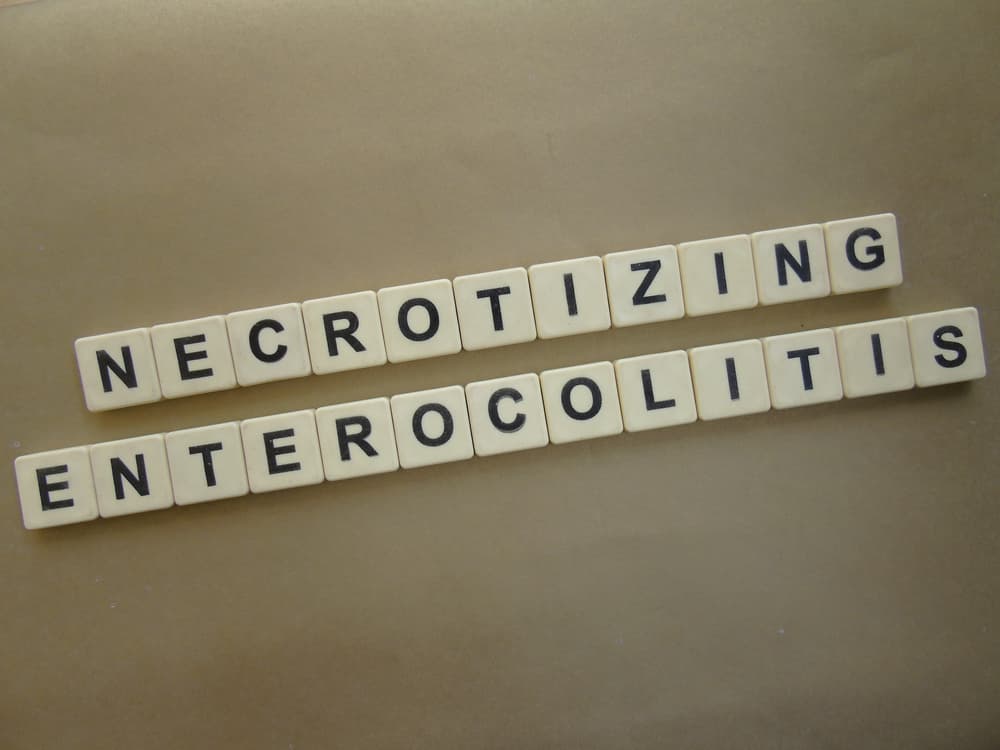Having a baby that requires medical care after birth is a challenging and overwhelming experience for parents.
Parents trust that their baby will receive the best healthcare possible while in the care of the NICU. Your baby might face unexpected challenges in their time at the NICU beyond doctors' and providers' control. However, what the facility and its providers choose to feed your baby while under their care may cause NEC, or Necrotizing Enterocolitis.
NEC causes potentially deadly symptoms that can develop in babies in their first weeks. The condition wreaks havoc and destroys healthy gastrointestinal tissue at sometimes alarming rates, with a need for quick diagnosis and often invasive procedures to save the baby's life and reduce the spread of the damage.
Premature infants, in general, prove more susceptible to NEC. However, studies have shown links that NEC develops more often in preterm fed cow’s milk-based formula and formula supplements.
Injured in Wisconsin? Get Nicolet.
Contact Nicolet Law Accident & Injury Lawyers If Your Infant Develops NEC After Formula Feeding

Did your infant develop NEC after consuming a cow's milk-based formula? According to research, both infants who drink cow's milk-based formulas as their primary source of nutrition and infants who consume primarily human milk products and supplement with fortifiers derived from cow's milk suffer an increased risk of bad outcomes, including the potential development of NEC.
Nicolet Law Accident & Injury Lawyers can help fight for you.
We make sure our clients understand their rights following an NEC diagnosis.
If your child has faced an NEC diagnosis and spent time in the NICU, you may already find yourself dealing with a wealth of information and complications. Understanding your rights and the steps you need to take next can make it easier for you to move forward with a lawsuit that can recover the compensation your family may deserve for those difficult losses.
We help you gather the evidence to establish your right to compensation.
To establish that you have the right to compensation for your child’s losses, you may need to prove two critical things. First, you may need to show that your child suffered an NEC diagnosis. Next, you may need to show that your child consumed a cow’s-milk-based formula or formula fortifier product, including Similac and Enfamil products.
We can help you gather evidence of the products your child may have consumed and your child’s medical records to put together a comprehensive claim that can help your family seek that much-needed compensation.
We fight to help our clients protect their rights, including their right to compensation.
According to The Politics of Breastfeeding: When Breasts are Bad for Business by Gabrielle Palmer, initial treatment for NEC can run, on average, between $138,000 and $238,000. That can place a substantial burden on your family. You may also find yourself dealing with various ongoing challenges and losses, including the loss of parental income and the overall suffering experienced by your family as you deal with this challenging diagnosis.
At Nicolet Law Accident & Injury Lawyers, we fight to help you recover the compensation your family may deserve for those serious losses.
Dangerous Marketing by Formula Companies in Wisconsin

In 2011, the Surgeon General released a warning letting formula companies know that their products could pose an increased danger to premature infants: infants at their most vulnerable and who may have the most significant overall risk of suffering severe complications.
In 2012, the American Academy of Pediatrics seconded those warnings and issued the advice that all premature infants should, when possible, receive a diet focused on their mothers’ milk. When mothers’ milk proved unavailable for any reason, the AAP continued, premature infants should receive human donor milk.
Formula companies did not adapt their marketing or even provide adequate warning to parents in response.
In fact, formula manufacturers continue to advertise heavily to Wisconsin residents with new babies, including several strategies intended to help discourage breastfeeding and tout the many benefits of fortified infant formulas for premature infants.
Formulas Marketed for Premature Infants
Both Similac and Enfamil, two of the main powerhouses in infant formula manufacturing, offer a significant number of products specifically marketed toward premature infants, including:
- Enfamil 24 Cal
- Enfamil Human Milk Fortifier
- Enfamil NeuroPro EnfaCare
- Similac Special Care 20
- Similac Special Care 24
- Similac Special Care 24—High Protein
- Similac Special Care 30
- Similac NeoSure
- Similac Liquid Protein Fortifier
These products contain labeling that suggests, in many cases, that they may provide advantages over human milk. They tout the advantages of their vitamin-fortified formulas for brain development, growth, overall immune support, and general infant development. Many parents may, as a result, feel considerably less confident about breastfeeding their infants, particularly if they do not know about the dangers of NEC often associated with formula feeding.
Manufacturers often attempt to link formula feeding to the most desirable outcomes for infants, especially premature infants. In many cases, the marketing materials make those outcomes feel impossible to achieve through breastfeeding. In reality, however, breastfeeding has no increased risk of dangerous outcomes, including failure to thrive or decreased weight gain, even in premature infants.
In fact, infants fed breastmilk instead of formula may have a decreased risk of several negative health outcomes associated with formula consumption. Unfortunately, formula companies continue to push the importance and benefits of formula, and parents may not know that formula feeding could offer these increased dangers.
Parents with infants in the NICU, in particular, may not think twice about formula feeding or fortifier supplementation in the effort to help their infants gain weight, often because they have no awareness of those potential dangers.
Inadequate Labeling
Infant products remain one of the most heavily regulated products on the market. Recalls of infant products frequently occur at any hint that the product might pose a danger to the infant. Products also often carry labels to warn parents about the dangers those products could pose and how to help avoid them.
Ready-to-feed infant formulas and fortifiers, often used for preemies, frequently contain warnings against microwaving the formula, since microwaving could cause hot spots that might scald the infant. However, they do not include warnings about the dangers of NEC, despite study after study confirming those extensive dangers. As a result, parents may not understand their children’s potential risks. That lack of information could lead to increased adverse outcomes for many premature infants, including NEC.
Formula Pressure
Many parents feel that they do not receive adequate support on their breastfeeding journeys. In fact, parents often find themselves pressured into using formula over human milk, even when they might find human milk more convenient and inexpensive.
Popular formula manufacturers have websites that claim to offer parents an “informed choice” about their feeding options. Those websites, however, may heavily pressure parents to consider formula. Furthermore, they may offer fear-based marketing about breastfeeding, including a heavy focus on supply issues or the difficulty of breastfeeding long-term.
Not only that, the formula remains in Wisconsin WIC offices, pediatricians' offices, and on the shelves of every grocery store, often accompanied by large advertisements pressuring parents to consider the advantages those products can offer. Formula manufacturers also offer coupons and free samples that can encourage families to try formula.
Breastfeeding operates on a supply and demand premise, with the mother's supply increasing to meet the baby's demands and decreasing as a mother feeds less often. Thus, even trying formula samples or supplementation may interfere with the breastfeeding relationship and ultimately leave infants relying on formula for their food. Worse, even formula supplementation raises infants' risk of NEC substantially.
Although information about the link between infant formula and NEC went out to pediatricians, hospitals, and manufacturers years ago, many pediatricians may not have all the information about increased NEC risk.
Do You Have the Right to File an NEC Claim in Wisconsin?
If your child consumed a cow's milk-based infant formula, and subsequently suffered an NEC diagnosis, you may file a claim to seek much-needed compensation for both the financial losses your family has faced and the non-financial losses that accompany NEC.
Contact Nicolet Law Accident & Injury Lawyers to learn more about your family’s rights, including whether you can show that you may have grounds for a lawsuit.
Can You Seek Compensation for Injuries Your Child Suffers From NEC?
If your infant suffers an NEC diagnosis following formula consumption, you may have the right to compensation for those losses. After an NEC diagnosis, your primary focus remains on providing the best possible future for your child.
While an NEC lawsuit cannot roll back the clock and prevent that diagnosis or suffering, it can provide your family with financial support that can make it easier to obtain the best possible medical care for your child, including the additional support to keep your child healthy.
At Nicolet Law Accident & Injury Lawyers, we cannot guarantee the compensation your family will recover for an NEC diagnosis due to formula consumption. However, we can help you break down your financial losses to make a comprehensive claim that shows the economic challenges your family may have faced because of your child’s diagnosis and struggles.
Medical Costs
Treatment for NEC can prove extremely expensive. Not only that, some children who suffer from NEC will have lifelong complications like short bowel syndrome that may necessitate ongoing medical treatment. As part of your lawsuit, you can include the costs associated with those medical treatments.
Financial Struggles of Parents of Special Needs Children
Taking care of a child with special medical needs can prove very challenging for parents, not just in terms of the emotions involved, but due to the need to care for the child at home. Children with a serious diagnosis may need to stay out of daycare or may need more specialized care. Often, that can mean substantial financial losses for the parents. As part of your claim, you can include compensation for those losses.
Pain and Suffering
An NEC diagnosis not only means significant suffering for the infant while recovering, it may mean a detrimental impact on the infant’s overall quality of life. As part of your claim, you may choose to include compensation for your infant’s overall suffering and decreased quality of life due to an NEC diagnosis. While a lawsuit cannot take that suffering away, it can make it easier for your family to provide the care and support needed by that infant.
Funeral and Burial Expenses
Around 25 percent of NEC cases result in the infant's death. If you lost your infant due to NEC after formula feeding, including cow's milk-based fortifiers and supplements created by a formula manufacturer, you may recover compensation. You may have the right to claim compensation for any funeral and burial expenses.
In addition, if you file a wrongful death claim after losing your child to NEC, you may have the right to claim compensation for the overall suffering faced by your family due to the loss of a child. Talk to Nicolet Law Accident & Injury Lawyers to learn more about your specific rights if your child died due to an NEC diagnosis after consuming cow’s milk-based infant formula.
Contact a Wisconsin NEC Lawyer Today

If your little one faced an NEC diagnosis due to formula feeding, your family may deserve compensation for many of the financial and non-financial losses associated with those struggles. Working with an experienced NEC lawyer can help you build a claim to establish your right to compensation. Contact Nicolet Law Accident & Injury Lawyers today at 1-855-NICOLET to discuss your family’s right to compensation following an NEC diagnosis or the loss of a child to NEC.